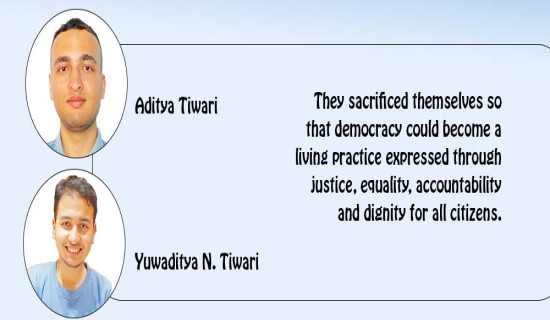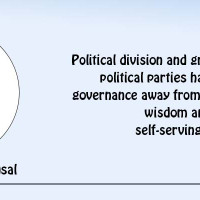- Friday, 30 January 2026
National Pride Projects In Sorry State
Nepal is a least developed country waiting for the attainment of the status of developing nation. As the country has been in developmental backwaters for years, it is imperative to launch development projects to accelerate development in every nook and cranny. In order to attain rapid development, infrastructure development projects are a must. Realising this, as many as 17 infrastructure development projects were selected in the fiscal year 2068/069. These projects are called national pride projects (NPPs). Now there are 24 such projects. These projects are based on the proposals prepared by the National Planning Commission (NPC). They are related to irrigation, transport, water, drinking water, hydropower, airports, religious development, conservation, etc. One of the NPPs is the East-West Railway Project that holds tremendous prospects for developing the transport sector in the country.
Till now, only three projects – the Upper Tamakoshi Hydroelectric Project, the Gautam Buddha International Airport Project and the Pokhara Regional International Airport Project-- have been completed. Almost 90 per cent of the much-touted Melamchi Drinking Water Project (first phase) has been completed. The rains and floods damaged the headworks and other structures of the project in Asadh 2078 B.S, hampering the completion of the project. Repairs are being carried out on the headworks and other structures of the project.
Controversy
As per the report released by the NPC, four NPPs have recorded progress over 80 per cent, five from 50 per cent to 80 per cent and 12 below 50 per cent. As stated above, three NPPs have been completed. The West Seti Hydropower Project and the Nijgadh International Airport Project have recorded no progress at all. The West Seti Hydropower has been in limbo for over 20 years. On the other hand, the Nijgadh International Airport Project has not been able to move ahead owing to controversy.
Development plans are regularly made in the country but their implementation is not satisfactory. There is hardly any development project that gets completed in time. Delay in completing development projects deprives people of the benefits the projects will generate. On the other hand, such delay results in time and cost overruns. The initial estimate for NPPs was Rs. 1,045.97 billion, which has since shot up to Rs. 2,597.56 billion. Till date, an amount of Rs. 429.65 billion has been spent on NPPs.
According to the report of the NPC, there is no policy-level provision for completing NPPs on a fast-track basis. Heed has not been paid to the detailed feasibility study, the detailed project report and the time-bound implementation and completion plan. There is an agreement between the ministry concerned and the chief of a project but such an agreement is not properly implemented and monitored. Neither the ministry concerned nor the project chief realises the responsibility for completing the project in time. Further, the mechanism for projecting risks, identifying risks and properly managing risks leaves much to be desired.
The NPC’s report stresses that there must be construction procedures, clear delineation and management of resources before announcing any NPP. The contract awarding process should begin only after site clearance, land acquisition and environmental impact assessment. When contracts are announced without completing the above tasks, problems may emerge while the projects are going on. This may delay the completion of the projects as well as pushing up the project cost.
The NPC has suggested that the ministry concerned set aside funds for NPPs as per the action plan before earmarking funds for other projects. There should be separate procedures for the management of the project chief and other staff so that there is not paucity of technical manpower. The responsibilities of project chiefs should not be changed unnecessarily. Nor should the project chiefs be replaced without assessing their performance during the project work. Such a practice is bound to hamper the progress of the projects.
Slow progress
Budgets are allocated every year for NPPs. However, the contractors selected for these projects are not serious. Some of them quit the work, leaving the work stranded. The Melamchi Drinking Water Project is a case in point. The government had to appoint one contractor after the other as they left the work in mid-stream. Such factors are responsible for slow progress in the implementation of such glorious projects. It has been eleven years since NPPs were launched. There is no special law regarding such projects. So although NPPs need to be given special treatment such as completing them on a fast-track basis, there seems to be no difference between these and other projects for lack of a special law.
The country has taken upon itself the Herculean task of attaining the status of middle-income country by 2030, the year when Sustainable Development Goals will have to be fulfilled. For this, infrastructure development is essential. The way NPPs are proceeding now shows that such projects cannot be completed in time. So the government should take the initiative in completing the projects on a fast-track basis. The government must be aware of why development projects do not proceed as per the agreements with contractors. The government should, therefore, go ahead with both NPPs and other projects with a clean slate. After all, these are the projects that will help improve the lives of people and transform the face of the country.
(Maharjan has been regularly writing on contemporary issues for this daily since 2000.)

















